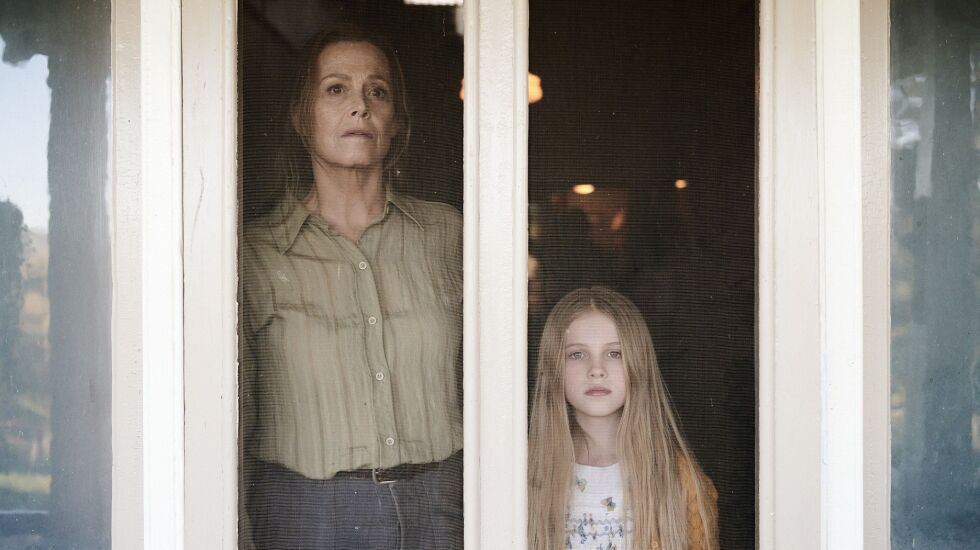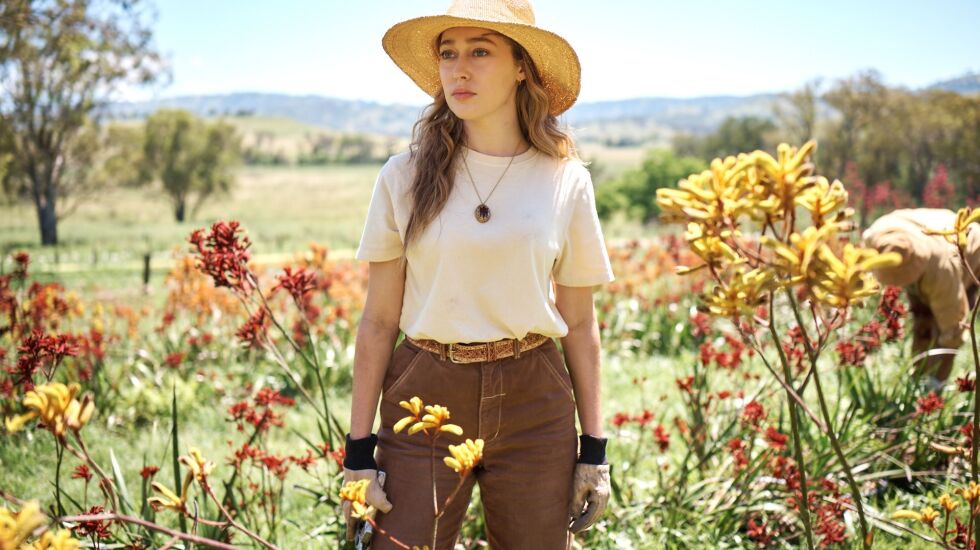
Secrets and lies.
The seven-part Amazon Prime limited dramatic series “The Lost Flowers of Alice Hart” is filled with characters who are harboring deep secrets and often protect themselves and the ones they love with elaborate lies, to the point where we’re often not sure if someone is a hero or a villain, or perhaps a little of both.
Based on the widely acclaimed debut novel by Holly Ringland and filmed on location in breathtakingly beautiful stretches of Australia, this series will not be for everyone, given its numerous, crushingly brutal scenes of domestic abuse and the devastating consequences of such pure evil actions. Still, by the time we reach the finale and one of the most moving closing sequences of any series this year, “Alice Hart” has earned its place as an important and inspirational story of female empowerment and the incredibly resilient nature of women who have endured so much and yet refuse to let anyone dim their shining light.
Skipping along timelines, based in three primary geographic locations and featuring a myriad of complex and intriguing characters who are connected in ways that are not always immediately revealed, “Alice Hart” can be a bit of challenge to keep up with, so let’s walk through the pathways while stepping around spoilers.
In the opening episode, 9-year-old Alice Hart (Alyla Browne) is living what initially appears to be a sun-dappled and magical storybook life in a seaside home with her pregnant mother Agnes (Tilda Cobham-Hervey) and her father Clem (Charlie Vickers) — but even when Alice joins her parents for an exhilarating dance to Bryan Ferry’s “Let’s Stick Together,” there’s something almost too intense, too forced about the revelry. Soon enough, we see the bruises on Agnes’ arms, the fear in Alice’s eyes every time her father returns home, the rage in Clem that explodes into horrific violence. Alice and her mother are prisoners in their own home.
A fire sweeps through the property, leaving Alice alone in the world. (We don’t learn the full details of what happened until very late in the story.) A local librarian named Sally Morgan (Asher Keddie), who lost a daughter about the same age as Alice, tries to convince her police officer husband (Alexander England) that they should take care of Alice — but in swoops Alice’s estranged grandmother, Clem’s mother June Hart (Sigourney Weaver). She announces Alice will be living with her on her expansive flower farm, which is also a haven for women June calls “The Flowers” — survivors of domestic abuse who have come to live and work on the farm in a space of healing, safety and support.
Leah Purcell is the warm and caring and tough-as-nails Twig, who is Alice’s longtime partner, and Frankie Adams is their adopted daughter, Candy Blue. Alice has stopped speaking since the tragedy, but June teaches her to communicate through the bounty of Australian native flowers and trees and plants on the stunningly gorgeous farm. (Each episode of “Alice Hart” begins with a title card listing a flower and its meaning, e.g., “WATTLE, meaning ‘Always With You,’ ” LANTERN BUSH, meaning ‘Hope May Blind’ ” and “DESERT OAK, meaning ‘Resurrection.’ ”)
Alyla Browne gives a remarkably expressive performance as the mostly silent young Alice, while the regal Sigourney Weaver is magnificent as June, who will do anything to protect the women on the farm, including taking the shotgun down from the mantle. (Still, when June confronts an abusive man threatening to find and hurt his ex, who lives on the farm, it’s not done in conventional, action-movie fashion. It’s more realistic and in some ways more devastating.)
In the fourth episode, Alice (now played by Alycia Debnam-Carey) is in her early 20s and has fled the farm after learning of a terrible betrayal by June — an act so cold and cruel it’s almost out of a horror movie, and it knocks us off balance as a viewer. There’s no justification for June’s behavior, though we eventually learn details from June’s own past that at least provide a measure of explanation.

Alice makes her way to the Northern Territory (one cannot overstate the stunning colors and depths of the visuals), where she finds work as a park ranger in the desert and connects romantically with the seemingly dashing and charming Dylan (Sebastián Zurita) — who turns out to be just as much of a coward and a monster as her father.
Virtually every main character in “The Lost Flowers of Alice Hart” has a deep secret, which has been buried for years. Storylines that run on parallel paths are eventually connected. (We see some of the reveals coming a mile down the road; others are truly shocking.) With Sigourney Weaver delivering yet another virtuoso performance in a storied career, we come to see that while June is deeply flawed and has made some huge mistakes in her life, she is a legend who saved hundreds of women through the decades and gave them the opportunity to flower and flourish on their own.







